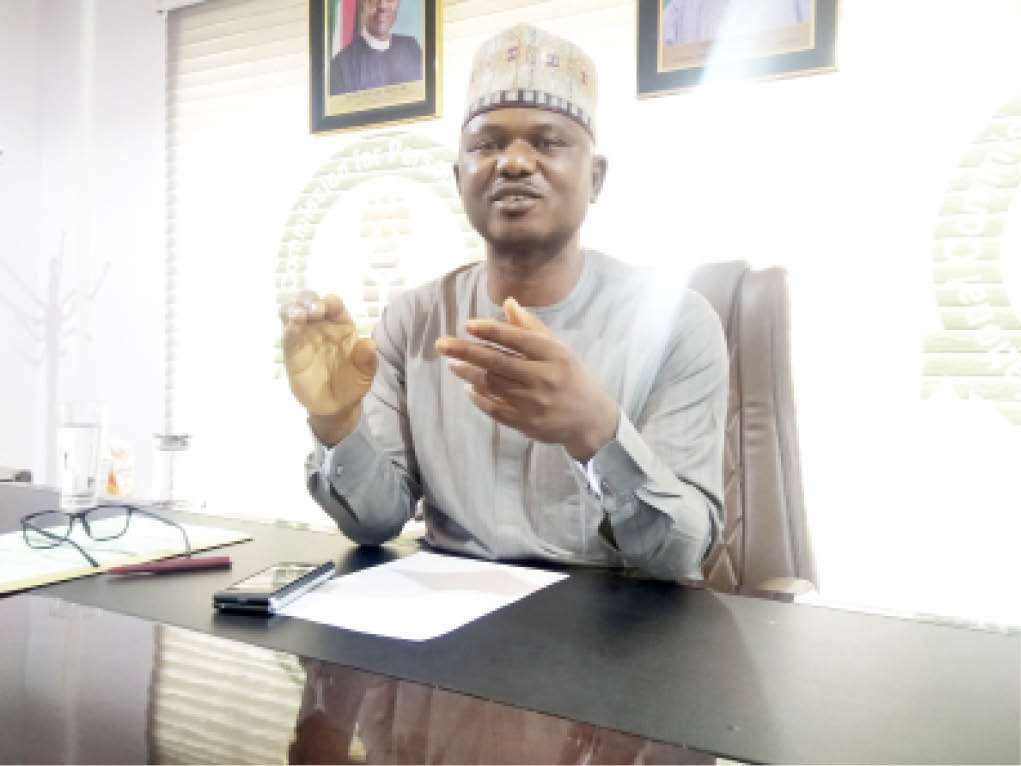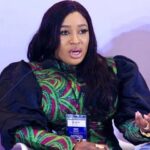James David Lalu is the pioneer Executive Secretary of the National Commission for Persons with Disabilities.
In this interview with Daily Trust, he talks about the 20 years struggle to recognise Persons with Disabilities (PWD) in Nigeria, and what the commission is doing to make the country comfortable for PWD, among other interesting issues.
- APPLY: Federal Roads Safety Corps recruitment 2021
- Abba Kyari: Why I attended Obi Cubana’s mum burial
The Discrimination against Persons with Disability Act was signed into law in 2018. What was the atmosphere like then in the disability community?
Immediately the bill was signed into law, the community was in jubilation. The act was an effort of the community since 2000. The struggle to get PWDs recognized started in the first democratic administration. The National Assembly passed the bill but presidents refused to sign it into law. Succour came our way with the emergence of President Muhammadu Buhari.
When he met the disability community in Lafia, Nasarawa State for campaign purposes, the first promise he made was to sign the bill into an act once it is brought to him and he will establish the National Commission for Persons with Disabilities before leaving office. He kept to his promise when the bill was brought to him and he signed it into law. A year later, he established the commission. What we should understand is that throughout the democratic dispensation, a lot of people came to the disability community and campaigned, promising to sign the bill into law but they kept failing. But President Buhari came once and we have the bill and the commission. That is why we will always regard him as our president since the amalgamation of Nigeria in 1914.
Were you given any explanation for the rejection of the bill by previous presidents?
One of the major reasons they gave was that they don’t have money to fund the new changes that will come with the bill. Is it by miracle that President Buhari got the money to fund it? Their refusal led to the national budget side-lining 31 million PWD. That is a huge number that can be gotten from bringing six states together. We are a major stakeholder in Nigeria being the largest minority group, benefiting from the national budget should not be regarded as an opportunity but a way to ensure there is equity for all.
Do you think there is any policy to complement the act for PWDs to achieve equality in Nigeria?
A lot of those at the top echelon of leadership do not understand how to help PWDs but they have it in their heart, that is why the commission was established to enlighten them and bring a clear understanding of what they should do to aid the community. Based on my present observation, getting employment is very important for the community to forge a path in the realisation of equity or equality. Before the establishment of the community, PWDs can be seen going to different offices to protest lack of employment opportunities which led to my invitation by the Senate Committee on Special Duties and House committee on Disability to know how PWD can be included in employment opportunities even though sections 28 and 29 of the act, specifically made it clear that five percent of employment opportunities in the public service should be made available for PWD. When they raised that interest, consultations were made. I met with the Federal Character Commission, the Federal Civil Service Commission and Office of the Head of Service of the Federal Republic and the Secretary to the Government of the Federation. All of them were passionate and committed to make sure that employment issues are not taken with levity. The SGF after the meeting promised to initiate a circular. This circular is expected to enforce compliance by every federal government agency.
Once we are able to achieve this, we have some partners that are coming with the commission. Very soon, we will be going round the six geo political zones to meet with all heads of MDAs to create the necessary awareness and make sure that enforcement and compliance about this section of the disability act is complied to by everyone. A lot of them already have interest. What we are going to do now is to bring it to their knowledge and understanding on how its implementation can be applied. The support of the head of service and SGF will energize us to make sure that our people get the necessary employment.
The disability community has smart and intelligent people and they have all the necessary certificates. A lot of them have PHD, Master degree and first degree, Diploma and NCE. We have thousands and millions that went to school but were unable to get employment because they have disabilities. This law is a messiah to the community.
The act gives 5 years moratorium for public property to be converted to allow accessibility to PWD; but two years down the line we haven’t seen major changes. How are you going to ensure compliance when the time is complete?
When we have the Disability Act, there is the backup policy that will ensure effective compliance, especially in the area of accessibility. This is a very sensitive issue. We have run out of two years and are getting to the third from the five years. We are going to meet up with the time provided by law. We have upped the tempo by trying to solicit the support of the Nigeria Police to constitute a taskforce on compliance for the act and we are going to meet with the Civil Defence Corps and other necessary paramilitary forces so that together we prosecute those that refuse to abide by the law.
A lot of engineers in Nigeria see accessibility as just construction of ramps, or slope, but it goes beyond ramp. There are a lot of things to put in place in a particular building before you can achieve an effective accessibility. One of the efforts we are making is to create a programme to bring together experts on accessibility, within and outside Nigeria. This is to allow us develop the accessibility minimum standard. This is a policy document that is expected to prescribe a specific measurement to a particular type of accessibility facility to be fitted in a building. This is to allow the same ramp measurement to be built in any part of the country.
We are also planning to organize a post degree training programme for civil engineers and architects as well as a curriculum to establish accessibility engineering programmes. The programme is expected to be a degree programme within a particular university. This is what we are currently working on and will be presented to the National Universities Commission for approval.
Education for PWD is very expensive, how do you intend to reduce it?
This has to do with funding. The commission is just coming up and our ambition is to see that by next year, we start taking the necessary steps on cutting costs. There are three factors hindering PWD from getting educated. First is when they gain admission; apart from paying for school fees, there is the challenge of getting assistive devices to enable them learn. For our brothers who are blind, they will get a braille, a manual typewriter and other devices. What we are going to do is to provide the necessary intervention in all federal institutions. We will soon launch a website in which a school informs the commission on the kind of disability the student has and the things needed for their education. When we see it, we will provide the necessary assistive materials the person needs and send it to the school.
How has the journey been since you came on board and how is the disability community fairing now?
My appointment was approved by the President on August 17, 2020, and we have been trying to catch up. The establishment of a new agency requires drawing the right manpower and putting all the necessary resources together to have a sturdy foundation. Since then, we have been drawing all the relevant systems together so that the commission can stand well. The major thing we did was to get a befitting accommodation for the commission to function very well. We will not forget the support and contribution of the Minister of Humanitarian Affairs, Hajia Sadiya Umar Farouk, for showing the deepest passion as she gave all the necessary support to make sure that the commission stands. We appreciate her for ensuring the total inclusion of PWD in the National Social Investment programme of the federal government. A lot of PWD are benefiting from these programmes.
What are your plans for the commission?
What we want to achieve is to make Nigeria a country that is comfortable for PWD by ending discrimination and providing adequate reporting system. We have received a lot of cases on discrimination against PWD and some involving high profile persons, so we want disciplinary measures to take its course backed by law.
We are working in the area of education, mass housing projects and liaising with the federal housing Authority and the federal mortgage Bank. We will encourage our community to form cooperative societies across the 36 states to be able to benefit from the national housing fund project. We need to get home because it makes life comfortable.
Part of our intervention as well is accessibility in the transportation sector, and we are collaborating with the ministry of transportation. Our commitment to help in gaining quality health services for the disability community is already pulling weight with the support of the National Health Insurance Scheme (NHIS.
We are also working with relevant stakeholders to put a stop to discrimination in the airline sector. Discrimination against PWD by airlines is much as they bring unnecessary policies while boarding planes. The highest form of discrimination is denying someone access to what they can afford.

 Join Daily Trust WhatsApp Community For Quick Access To News and Happenings Around You.
Join Daily Trust WhatsApp Community For Quick Access To News and Happenings Around You.


